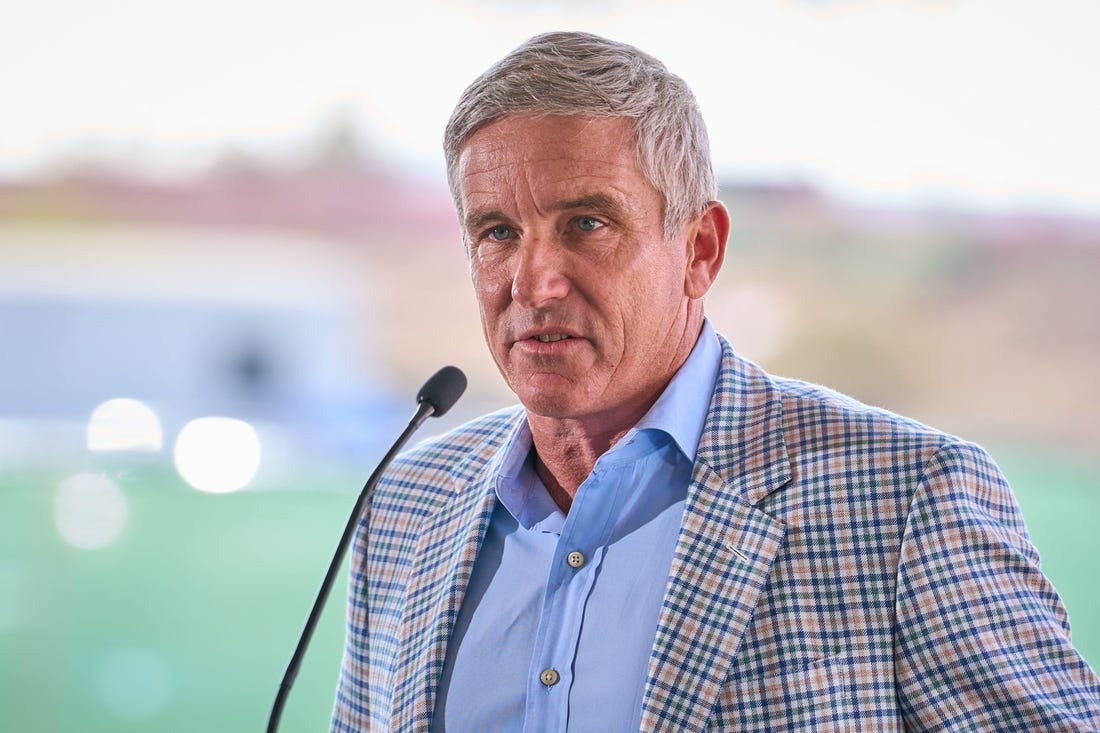
Randall Stephenson resigned from the PGA Tour policy board, saying he cannot support its framework deal with the Saudi Public Investment Fund, the Washington Post reported Sunday.
Stephenson, who was the chairman and CEO of AT&T before retiring in 2020, alluded to Saudi Arabia’s human rights record in a resignation letter obtained by the Washington Post.
“[The deal] is not one that I can objectively evaluate or in good conscience support, particularly in light of the U.S. intelligence report concerning Jamal Khashoggi in 2018,” Stephenson wrote, referring to the dissident Saudi journalist who was assassinated at the Saudi consulate in Istanbul.
The PGA Tour’s stunning decision to enter a partnership with the PIF last month was kept under wraps, with commissioner Jay Monahan and a select few board members, including Ed Herlihy and Jimmy Dunne, aware of and working on the negotiations.
Saudi Arabia has invested heavily in sports around the world, including bankrolling the LIV Golf League, which debuted last year and split men’s golf by paying high sums to stars like Phil Mickelson and Brooks Koepka.
The PGA Tour fought back publicly, with Monahan even criticizing Saudi Arabia’s human rights record, while endeavoring to raise purses to persuade its remaining star members to stay.
Though it might spell the end of LIV Golf, the new framework deal would see PIF governor Yasir Al-Rumayyan serve as chairman of the combined PGA-PIF entity and Monahan serve as CEO.
The alliance needs the 10-member policy board’s approval in order to move forward.
Stephenson said he planned to resign sooner, but waited because Monahan stepped away soon after the June announcement for medical reasons. Monahan is returning to work July 17.
“I joined this board 12 years ago to serve the best players in the world and to expand the virtues of sportsmanship instilled through the game of golf,” Stephenson wrote. “I hope, as this board moves forward, it will comprehensively rethink its governance model and keep its options open to evaluate alternative sources of capital beyond the current framework agreement.”
–Field Level Media

